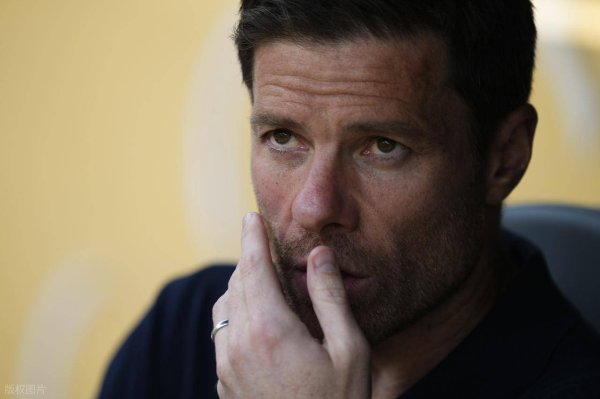HOME > Football
Former Real Madrid star sued FIFA for 56 million yuan! Winning the lawsuit in 10 years, may rewrite the rules of transfer in the world football world
6:00am, 20 August 2025【Football】

The football world is making another big hit! Former French international and midfielder Rasna Diyala, who once played for Real Madrid, is claiming up to £56 million from FIFA. This case of players' personal rights protection will result in a "earthquake" in the global football transfer system.

We turn the time back 11 years ago. In 2014, Diyala had a quarrel with the Russian Super League giant Locomotive Moscow Locomotive because of a salary dispute. Diyala chose to terminate the contract unilaterally, but the club sued him to FIFA without hesitation. As a result, FIFA supported Moscow Locomotive and sentenced Diyala to pay a penalty of 8.8 million pounds and added a "15-month ban". For professional players, what does it mean to not have a game for 15 months? It is almost equivalent to a career cut, and no income, endorsement fees and other commercial income may also be terminated. That year, Diyala could only completely fall into a dilemma of no ball to play, and money was gone in vain.

Diala tried to save herself during the suspension period. In 2015, Belgian team Charleroi extended an olive branch to him and prepared to sign the midfielder. But at the critical moment of the transfer, FIFA refused to issue an International Transfer Certificate (ITC), which caused the Belgian Football Association to be unable to register for it. The transfer ended up completely. In other words, Diyala not only lost her job, but also "blocked the way out" by the entire system. In his opinion, this is no longer a matter of breach of contract compensation, but the FIFA regulations directly deprive him of his right to free transfer and employment.

Since 2015, Diyala formally sued FIFA, accusing their transfer regulations of infringement of EU law, especially the basic right of workers to free movement, and the lawsuit has lasted for 10 years. This case was destined to be long and complicated from the beginning. FIFA is the highest institution of football in the world, and the rules are almost equivalent to "industry law". However, Diyala insisted on it. For a whole decade, he kept appealing and refuting, and finally beat the lawsuit to the European Court of Justice (CJEU).
October 2024 ushered in a historic moment. The European Court of Justice made a landmark judgment: supporting Diyala's claim and determining that some of FIFA's transfer rules are indeed in conflict with EU law. The ruling was a thunderstorm, and Diyala then claimed £56 million from FIFA. So where does the £56 million compensation come from?
According to Diyala, £56 million is not a sky-high price that is casually shouted, but is based on evidence.
Lost salary: During the 15-month suspension period, he was unable to play football and directly lost his salary income.
Commercial endorsement: As a French international and former Real Madrid player, he originally had commercial potential, but because he was unable to participate in the competition, his endorsement contract was also terminated.

Career damage: A player's golden period is very short, and Diyala was unable to play during that critical period, resulting in a sharp decline in competitive level and market value, which is an irreversible damage. In this way, the £56 million claim amount does not seem outrageous. FIFA's transfer system has long been considered a "player binding clause" and clubs are often in an absolute strong position. Once a player has conflicts with the club, he or she will often face huge compensation and bans when unilaterally terminate the contract. This rule design was originally designed to protect the club's investment, but it also greatly restricted the players' freedom.
Now, the European Court of Justice ruled that some of the FIFA rules are contrary to EU law, which means that in similar cases in the future, players will have more confidence to protect their rights. More importantly, this may force FIFA to revise part of the transfer system to conform to the EU's legal framework.
Related Posts
- Zhan Jun: Sobo should be the most stable core for the Red Army in the new season. The most important thing is to improve the defense.
- 0-1, the former Premier League champion lost to Millwall and suffered 2 consecutive defeats in the English Championship + dropped to 10th place
- One-day Premier League news: Manchester United is accelerating the sale of backup shooters, Slott has a new target to buy defenders
- 22 seats have been reserved for the World Cup: Cape Verde, a small country with a population of 540,000, has advanced! There are 3 seats left in the African region.
- Defeat! Ruben Neves: Jota’s jersey gives me extra strength and the victory is well deserved
- Damn laughing: 1-0 in 90 minutes, Guardiola excitedly kissed the fourth official, and Manchester City was beaten 3 minutes later
- Infantino: Serie A is the league in my life, I will always pay attention to A
- 2025.08.31 Paris Football Club VS Metz Event Recommendation Analysis
- Austrian roster: Alaba leads, Sabize, Lemel, Anau, and Dansor are selected
- Real Madrid double stars Mbappe and Vinicius are in a crisis of self-confidence
Hot Posts
- Zhan Jun: Sobo should be the most stable core for the Red Army in the new season. The most important thing is to improve the defense.
- 0-1, the former Premier League champion lost to Millwall and suffered 2 consecutive defeats in the English Championship + dropped to 10th place
- One-day Premier League news: Manchester United is accelerating the sale of backup shooters, Slott has a new target to buy defenders
- 22 seats have been reserved for the World Cup: Cape Verde, a small country with a population of 540,000, has advanced! There are 3 seats left in the African region.
Recommend

Ronaldo was substituted in the 90th minute! Before the game, Ronaldo turned around and applauded the audience

The new moon of the Club World Cup draws 860 million Real Madrid! The gold and dollar football changes, and the capital + system can shake Europe

Vatsk: We have entered the Champions League for 10 consecutive seasons, and it will be very annoying if we miss the Champions League

[Scene] Atletico Madrid scored 5 goals in two consecutive games! Spider-sick helps Grid reach a milestone

Recommended today s game: Kawasaki Forward VS Osaka Gamba (with scores)

The goalkeeper world wave ignites the green field, the game hides the strategic battlefield

Vieira: This Juventus team is stronger than last season and is determined to compete for the championship, but Genoa also wants to win

Zhang Benmi-he summarized Iguazu Station: After Argentina, he won two championships again!